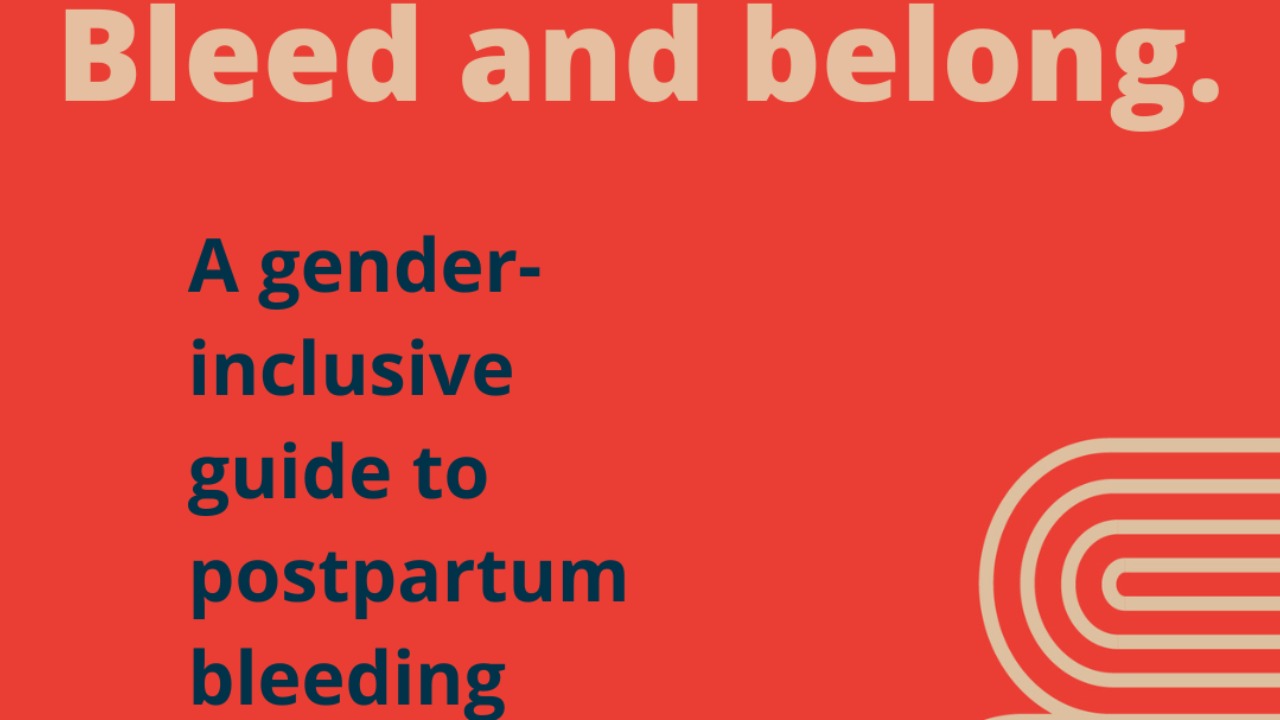Postpartum Bleeding Smells / Lochia Smell: A Gender-Inclusive Guide

In the haze of postpartum, you’re looking for accurate, easy-to-understand answers to questions like, What does lochia smell like? How long does lochia last? How much bleeding is too much? Too little? What are normal lochia colors? How long am I supposed to bleed for postpartum? What should I do if I’m bleeding too much or too little postpartum? What’s the timeline for postpartum bleeding? My postpartum blood has a smell, is that ok? So many questions, so much confusion. Let’s create some clarity.
Postpartum Bleeding: Is this normal?
Chinese medicine has thousands of years of wisdom to offer on this topic and postpartum recovery writ-large. In fact, in conversation with a colleague and peer Queer herbalist, Elokin Orton-Cheung, they reminded me that the original wisdom carriers of this medicine were women and people with uteruses. And that, in their deep and long standing understanding of bodies with uteruses, these wisdom carriers were erased as the originators of this knowledge during the time that Mao standardized “Traditional Chinese Medicine”. Anyway… that’s kinda another topic.
That said, Chinese Medicine has a lot to offer in terms of the color, smell, consistency, and volume of blood and what it says about our phase of postpartum recovery as well as our overall health. This wisdom will be peppered throughout this whole article with a longer section below on the smell of postpartum blood / lochia.
How Long Does Postpartum Bleeding Last?
So the first phase of bleeding, 4-6 weeks postpartum is called “lochia”. This bleeding occurs because the placenta which nourished your baby has detached from the uterine wall and has left the body (no matter the birth site). That is a wound that takes time to heal, so it bleeds. Just like any other part of the body that is in the early phase of healing.
The First 3-5 Days Postpartum
During the first 3-5 days, the blood is bright red and can contain large clots. During Days 3-4-5, the blood gradually turns a darker red, then a brown or pink as the volume decreases. If bright red blood returns on Day 5 or if it stops completely, call your healthcare provider. This may be an indication that you need to rest, so while you’re waiting to speak with your provider, prioritize rest.
Day 6 to Day 14 Postpartum
From Day 6 to Day 14, the lochia turns brown, pink, or very light red. If bleeding lasts beyond the 14 days, contact your healthcare provider. Just like during the first 5 days, if your blood volume suddenly increases or the blood suddenly turns red during the Day 6-14, rest right away. Which means, get off your feet, don’t heft anything that you can avoid hefting, and call your healthcare provider.
2 Weeks Postpartum and Beyond
From Day 14 for the next several weeks, the lochia is scant in quantity and is a very light pink, white, or yellow. This shouldn’t require more than a liner.
My Postpartum Blood (Lochia) Is Smelly, What Does That Mean?
This is where Chinese medicine has a lot to offer our understanding. (As we delve into this, remember that if you have a sudden shift in the smell of your blood, especially if accompanied by a fever, call your healthcare provider right away to rule-out infection.)
Normal Lochia Smell
Lochia can have a smell, just like discharge can. A mild, fishy smell is normal for discharge and postpartum bleeding. Add in a bit of a metallic smell for the presence of blood. You may be like, really? The body-shaming-complex always suggested that my discharge is supposed to smell like a freshly-cut bouquet of flowers. NOPE! A mild fishy odor is completely healthy. So, there you are.
My Lochia Has No Smell And I’m Cramping
If your lochia has no odor and you’re having painful cramping, you may have some cold stagnating in the lower abdomen. Try to apply a warm water bottle to the area, keep warm, and eat and drink only warm and hot foods. Cold stagnation can become increasingly more painful over time if it goes unaddressed. If you’re experiencing painful postpartum cramping that doesn’t subside within a couple of days, book a 25 minute consult to explore your care options.
My Lochia Has A Strong Smell and I’m Bleeding A Lot
If your lochia has a strong, sharp smell and you’re bleeding more than the typical amount and the blood is a fire engine red color, you may have heat in the lower abdomen. Call your midwife or OB as this may be a sign of infection. And refrain from spicy, fried, and salty foods. Increase your water intake.
My Lochia Has A Fishy Smell And The Blood Is Thick
If your lochia has a strong, pungent, fishy smell and the blood or discharge is thick or stringy, you may have damp-heat in the lower abdomen. Call your doctor as this may be a sign of infection. Make sure to refrain from spicy, fried, and salty foods. Increase your water intake.
When To Call Your Midwife Or Obstetrician
…if the bleeding suddenly stops during Days 1-5…
…if you get a fever at any stage…
…if bright red blood comes back on Day 5 or after…
…if bleeding continues after Day 14…
…if the blood has a strong, fishy, or sharp smell…
…if there’s a sudden change in the smell or quantity of the blood…
And if you need support to manage postpartum bleeding or other challenging postpartum symptoms, explore Holistic Postpartum Care or join The Postpartum Reset For All Bodies.


